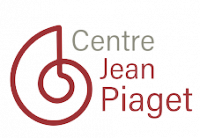Research culture and the dynamics of relationships as a process of orientation and attractiveness in the work of Jean Piaget (1912-1980)
Research (2024-2027) supported by the SNSF n° 100011_219697
Applicant: Marc Ratcliff
How is an intellectual and scientific work constructed and oriented? Posing this question within a historical and epistemological framework, our project examines the intellectual career of Jean Piaget (1896-1980) and the development of his work.
Complementing the periodisations of the history of ideas, the aim is to understand the roles played in the development of the work by processes operating at organisational, methodological, didactic and practical levels, as well as at the level of social or symbolic interaction. The first relates to the notion of research culture, i.e. all the means of producing scientific facts. The second relates to the dynamics of relationships, which concern Piaget's own modes of reaction in situations of social or symbolic interaction. By questioning the role of these sociodynamic systems in the orientation of the work, little-known dimensions emerge that make it possible to revise or even integrate the contradictory interpretations stemming from historiography.
Our research is guided by two hypotheses: (1) (H1) the main function of the research culture is to create a dynamic that links conservation and innovation, a prerequisite for the reorientation of the work; and (2) (H2) the dynamics of Piagetian relationships, with their different figures, are an important factor in the social attractiveness of the Piagetian project.
We are using an approach based on the epistemological and social history of psychology, combining qualitative and quantitative methods, using unknown archives (unpublished material) and digital humanities resources. The project is coordinated with the Edition Numérique des Œuvres de Jean Piaget, which has a textometry laboratory.




